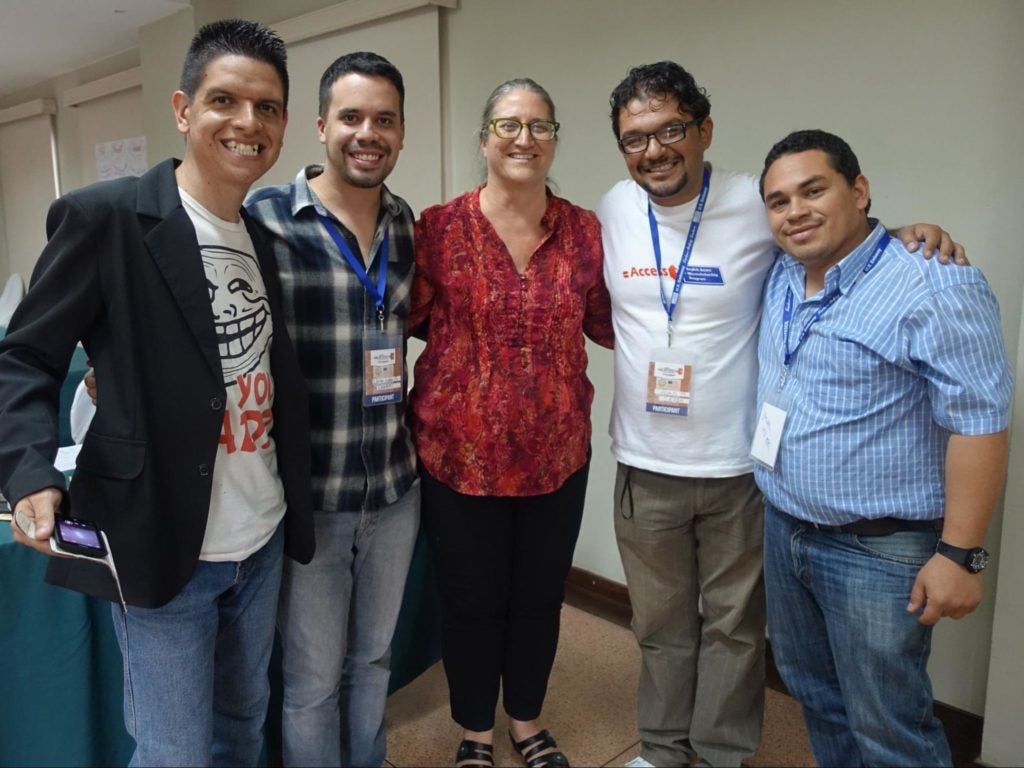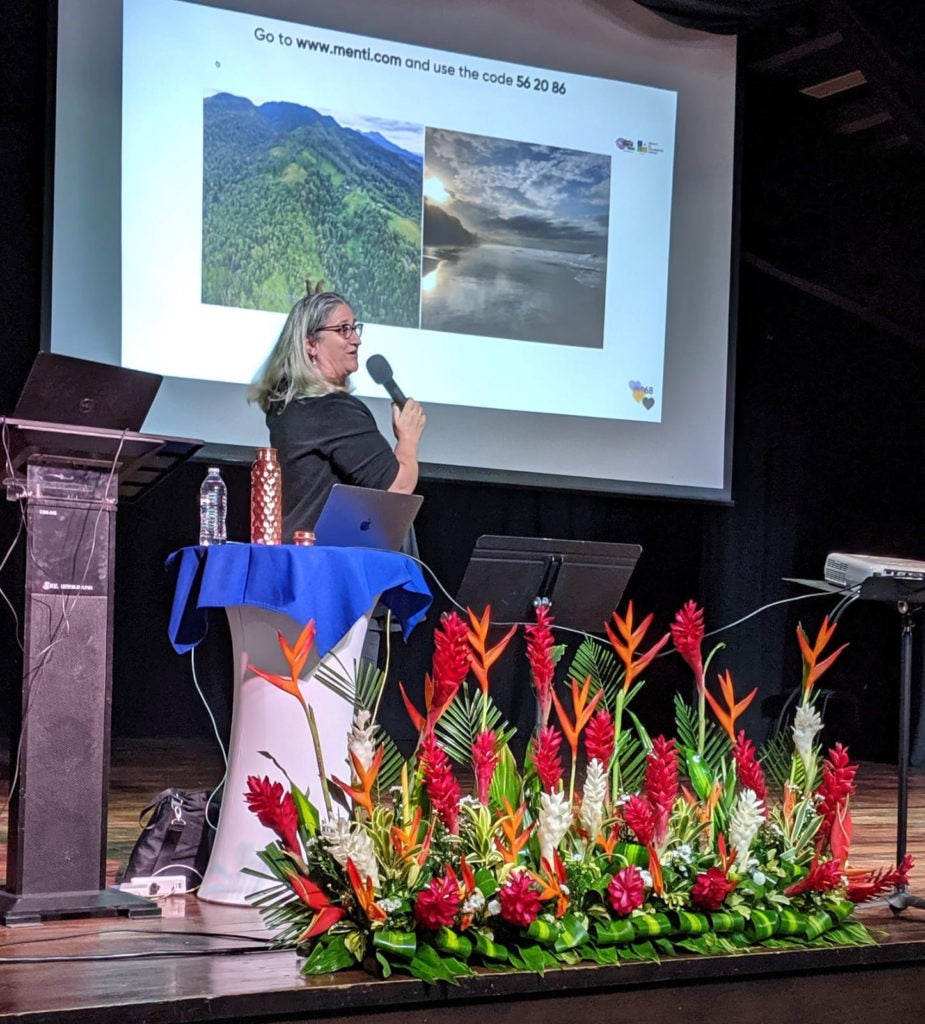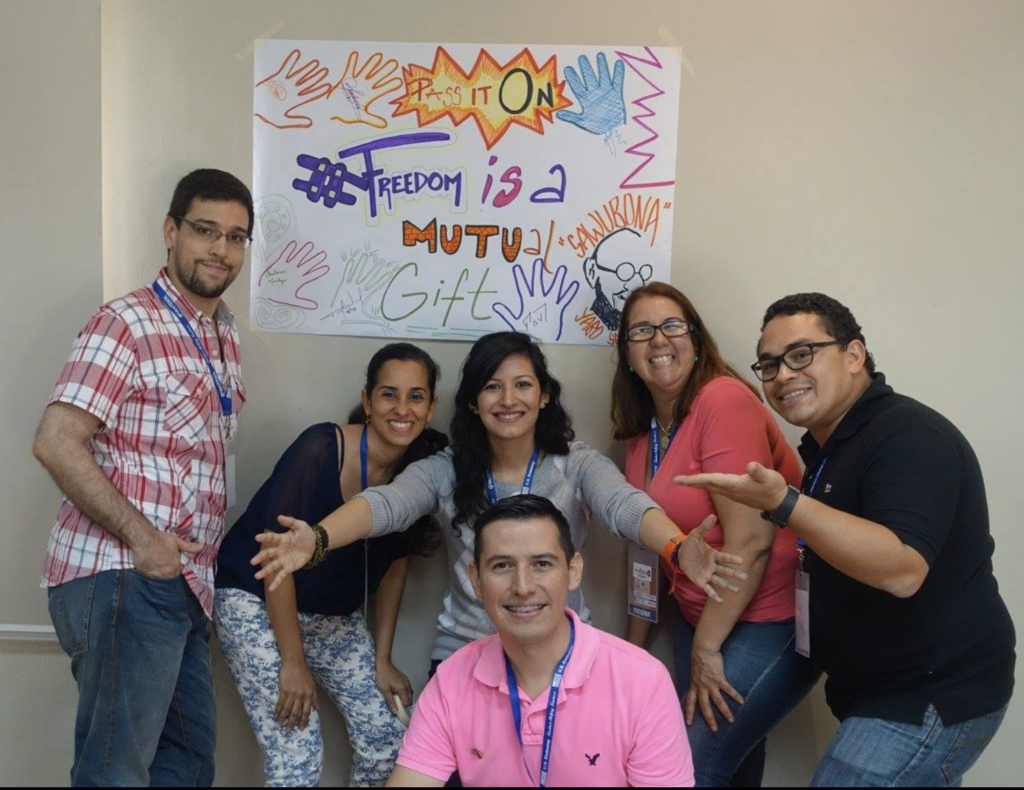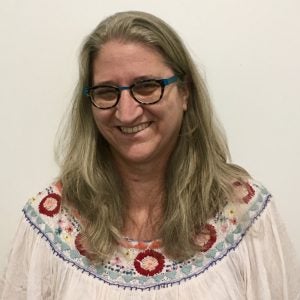“My wheelhouse is working with Latin American teachers. I know their academic environments and deeply understand their needs and concerns as educators.”
Captivated for many years by the countries and cultures of Central and South America, longtime English
Language Specialist Mary Scholl made Costa Rica her permanent home in 2001 and two years later
founded Centro Espiral Mana, recently renamed the Institute for Collaborative Learning, which offers a
broad spectrum of English language teacher training programs to educators from around the world, as
well as workshops in leadership development, organizational planning, and more. Scholl not only runs
the Institute, from which more than 2,000 teachers have graduated from the TESOL Certificate Course,
but also works with Peace Corps volunteers, Access teachers, and community leaders and, as a Specialist,
trains educators, both in-country and online. While Scholl has served globally as a Specialist, her
assignments in Central and South America — Brazil, Costa Rica, Cuba, the Dominican Republic, Ecuador,
Guatemala, Honduras, Nicaragua, Panama, and Venezuela — resonate most strongly with her. “My
wheelhouse is working with Latin American teachers,” she says. “I know their academic environments
and deeply understand their needs and concerns as educators.”

As a Specialist, Scholl has always put her creative approach to teaching into action in her trainings and
classrooms, no matter the location. Before beginning any educational program, she always asks herself
four questions: “What is happening inside the learners’ heads, hearts, and bodies? What is happening
between the people involved? What is happening within the context of the class; that is, are there
community or regional issues to be aware of? And finally, how does all of this affect learning? It’s
important to view everyone in the room as a human being first, each with individual needs they want to
get met,” she says. She found those questions to be particularly meaningful during her 2015 assignment
in Venezuela, where she presented the plenary speech at the annual conference of Venezuela TESOL
(VenTESOL) and gave workshops to teachers and students both during and after the conference. Because
of the economic and political turmoil in that country, Scholl was well aware of the difficulties it took for
VenTESOL’s leadership to organize the conference, from setting up the facilities to ensuring enough food
was available for participants. “Venezuela had a huge impact on me,” recalls Scholl. “Despite living and
working under extremely difficult conditions, there was a real sense of community, commitment, and
openness to learning among all of the participants, as well as tremendous grit and resilience. I had never
experienced such dedication and determination before.”

A strong advocate for a prosocial approach to education, Scholl chose to focus her VenTESOL plenary
speech on developing such skills as empathy and mindfulness in the classroom, the idea being that for a
language learning classroom to be successful, what is happening inside and between the individuals in
that room matter more than the materials used and the linguistic analyses applied. “Yes, these teachers
are working in low- or no-resource classrooms and while it’s important to address that issue, it’s just a
piece of the puzzle,” she notes. “There are shifting paradigms in education, and every teacher should
have the opportunity to work through them.” Those paradigms include taking into account the function
that emotions play in learning, the teacher’s role in responding to learners’ emotional reality, and
recognizing that teachers and learners thrive more fully — and learn English more effectively — in an
environment that measures success by the creation of supportive relationships and the development of
autonomy, responsibility, and a strong sense of self. “The biggest resource that we have is ourselves,”
says Scholl.
“There are shifting paradigms in education, and every teacher should have the opportunity to work through them.”
Under that umbrella of developing prosocial skills, Scholl focused her workshops in Venezuela on a
teaching framework that she and colleague Josh Kurzweil co-developed in 2004. Known as ECRIF —
encounter, clarify, remember, internalize, fluently use — this approach emphasizes the learning process
that students go through when working on a target skill rather than what the teacher is doing during the
lesson. To illustrate, Scholl started off each training with a simple exercise in which participants stood in
circles and learned one another’s names through an activity that took them through each stage of the
ECRIF process, tossing a ball to one another and stating, reminding, recalling, and repeating names until
teammates could easily identify each other. Scholl then moved on to demonstrate how to apply this
model to specific language skills. Activities for learning new vocabulary, for example, might include
having students answer questions using the target language to encounter, match meanings to words to
clarify, quiz one another to remember, create dialogues to internalize, and role-play to fluently use.
“ECRIF was developed to put us immediately into the learner’s experience. What is happening cognitively
with the learner? What does the learner need? Maybe more clarifying or remembering? The teacher has
to notice and respond to that need,” says Scholl. As for the response of the Venezuelan teachers in her
workshops, most of whom had never experienced such an interactive approach to language teaching,
“It was like they’d been walking through a desert for 10 days and someone gave them each a cool glass
of water. They completely embraced it.”

Scholl also directly addressed a common issue in Venezuela’s schools: a lack of resources, a reality she
encountered at more than one workshop. When taking participants through the name-learning activity,
there were often no tossable objects such as balls or stuffed animals in the room, so Scholl had teachers
use gestures instead. “We don’t need resources as cues — we can use our bodies,” she says. If dice are
required for an activity but not available, Scholl recommended counting fingers or incorporating the
well-known hand game, Rock Paper Scissors. “I always tell my teachers, ‘If I can’t teach with a stick in
the mud, I probably won’t be able to teach with all the fancy high-tech gadgets in the world at my
fingertips.’”

Mary Scholl, a deep believer in learning, empathy, community, creativity and curiosity, is a fellow of the Institute for Collaborative Learning and founder of Centro Espiral Mana in Costa Rica. She has been teaching language for 30 years, designing and implementing educational projects in Latin America for over 18 years and has served as an English Language Specialist for 16 years in 9 countries. Mary, TESOL Certificate Trainer and trainer of trainers since 2001, holds an MA in Teaching English and Spanish from SIT Graduate Institute and is pursuing a doctorate in Adult Learning and Leadership. She has lived and/or taught on four continents and currently enjoys working virtually around the world from her home in Costa Rica.
